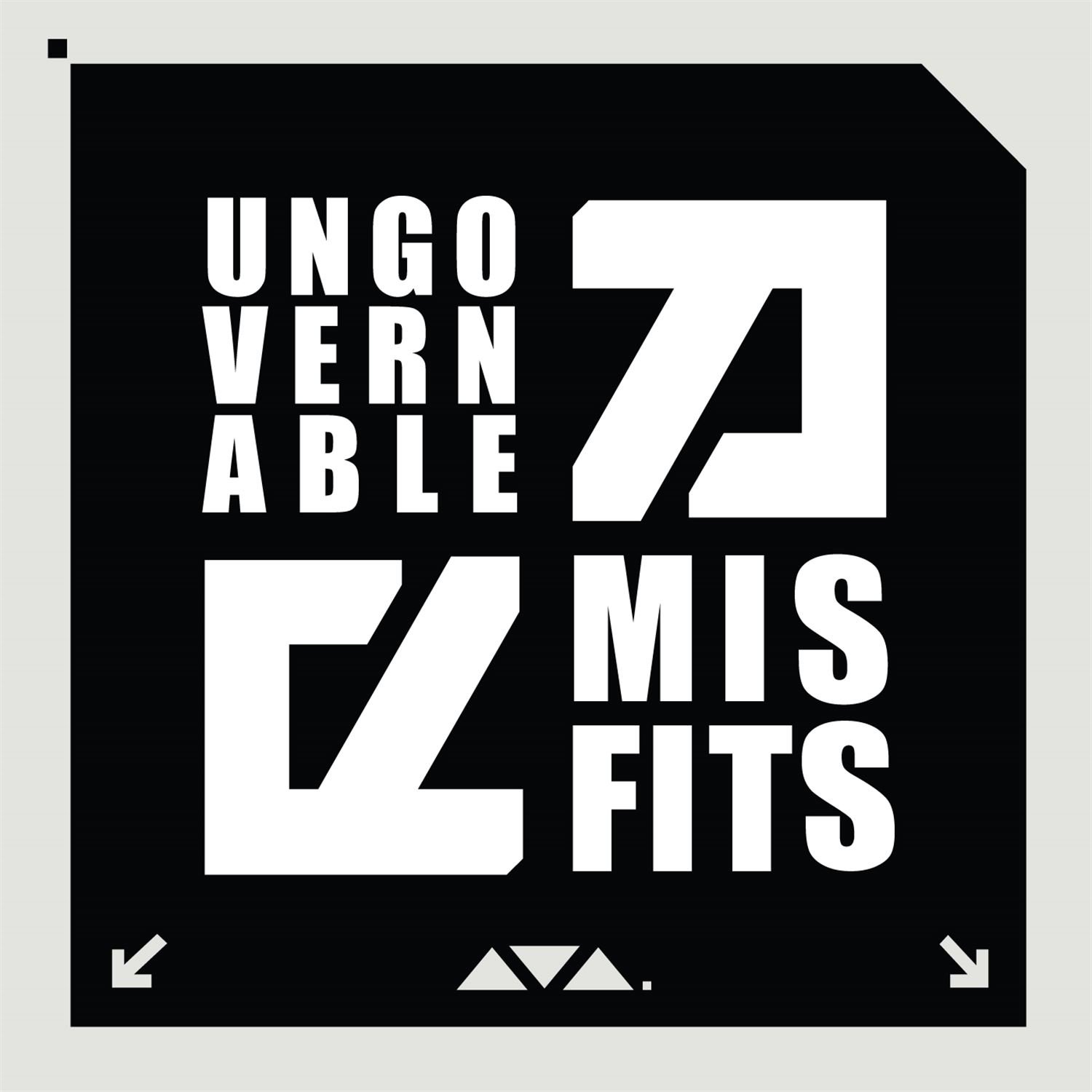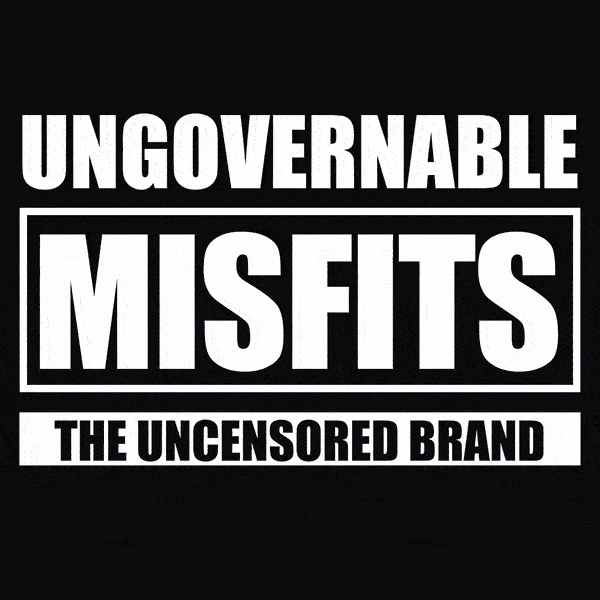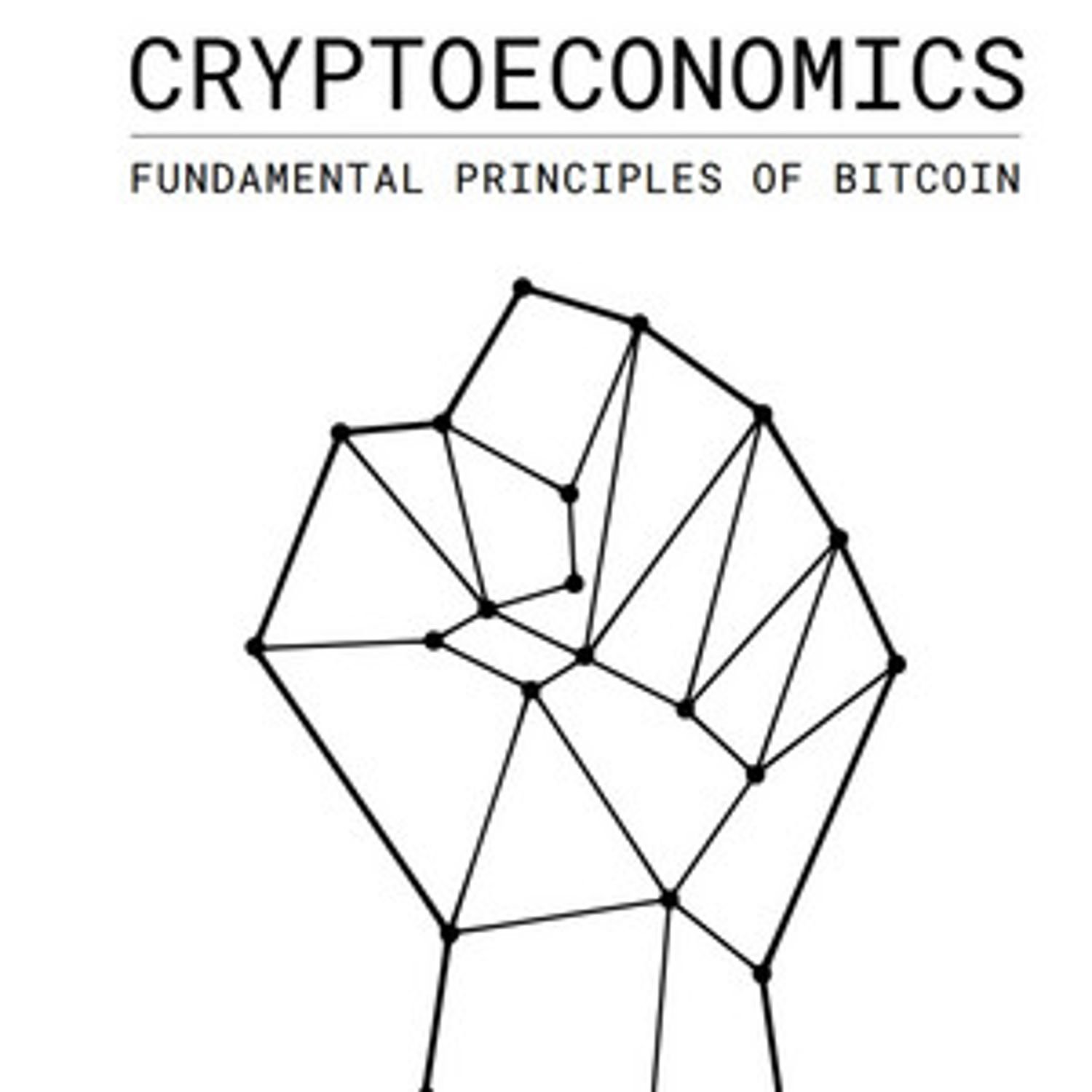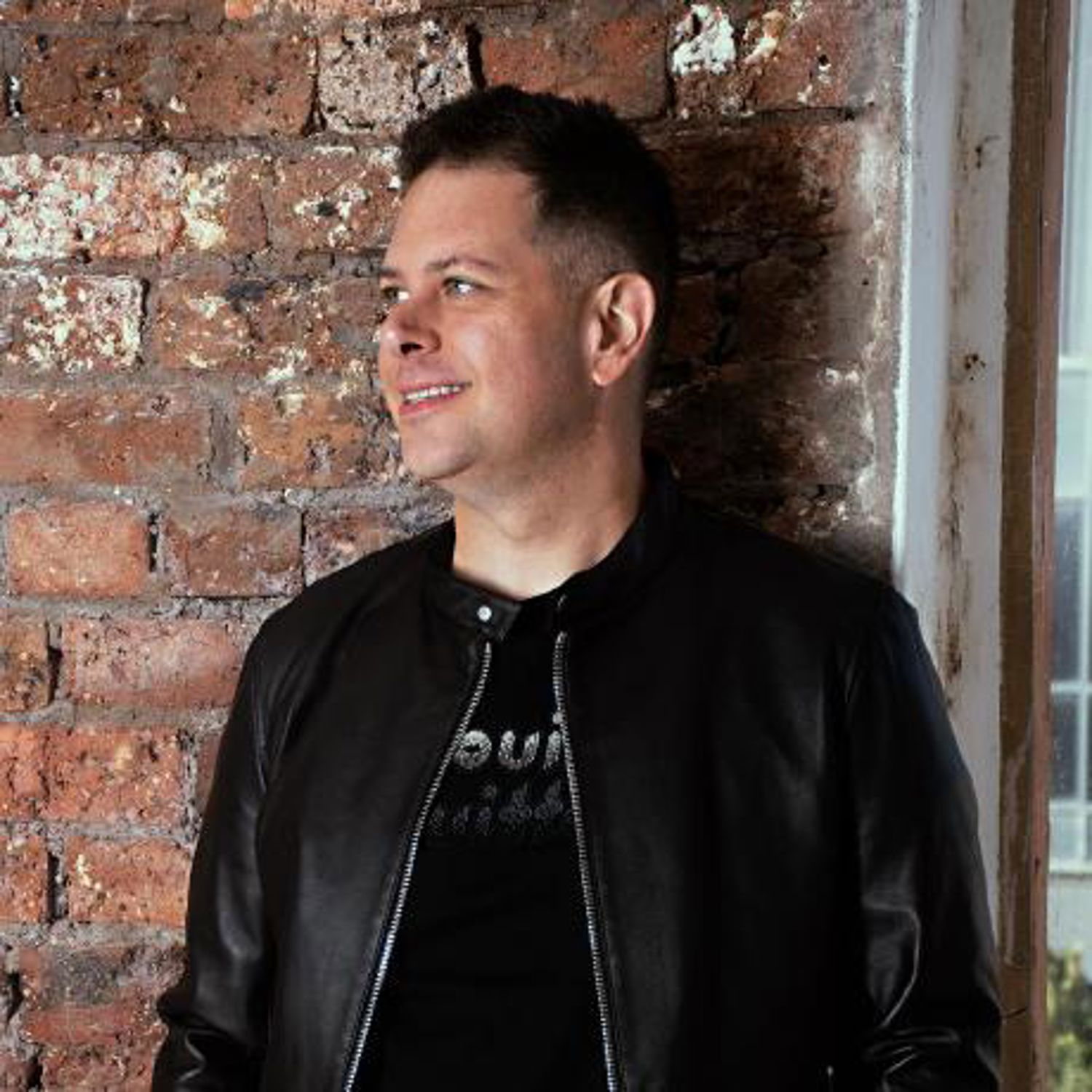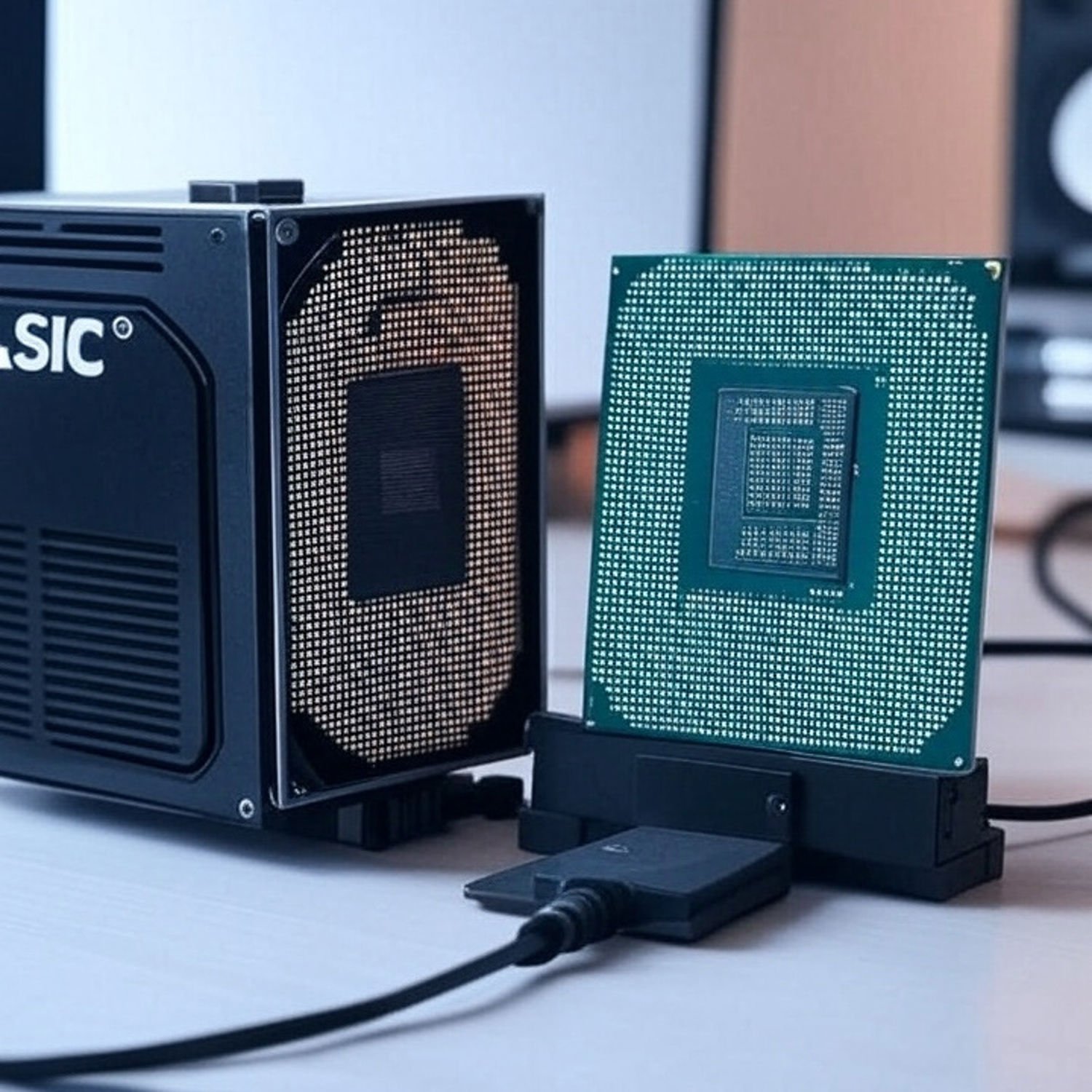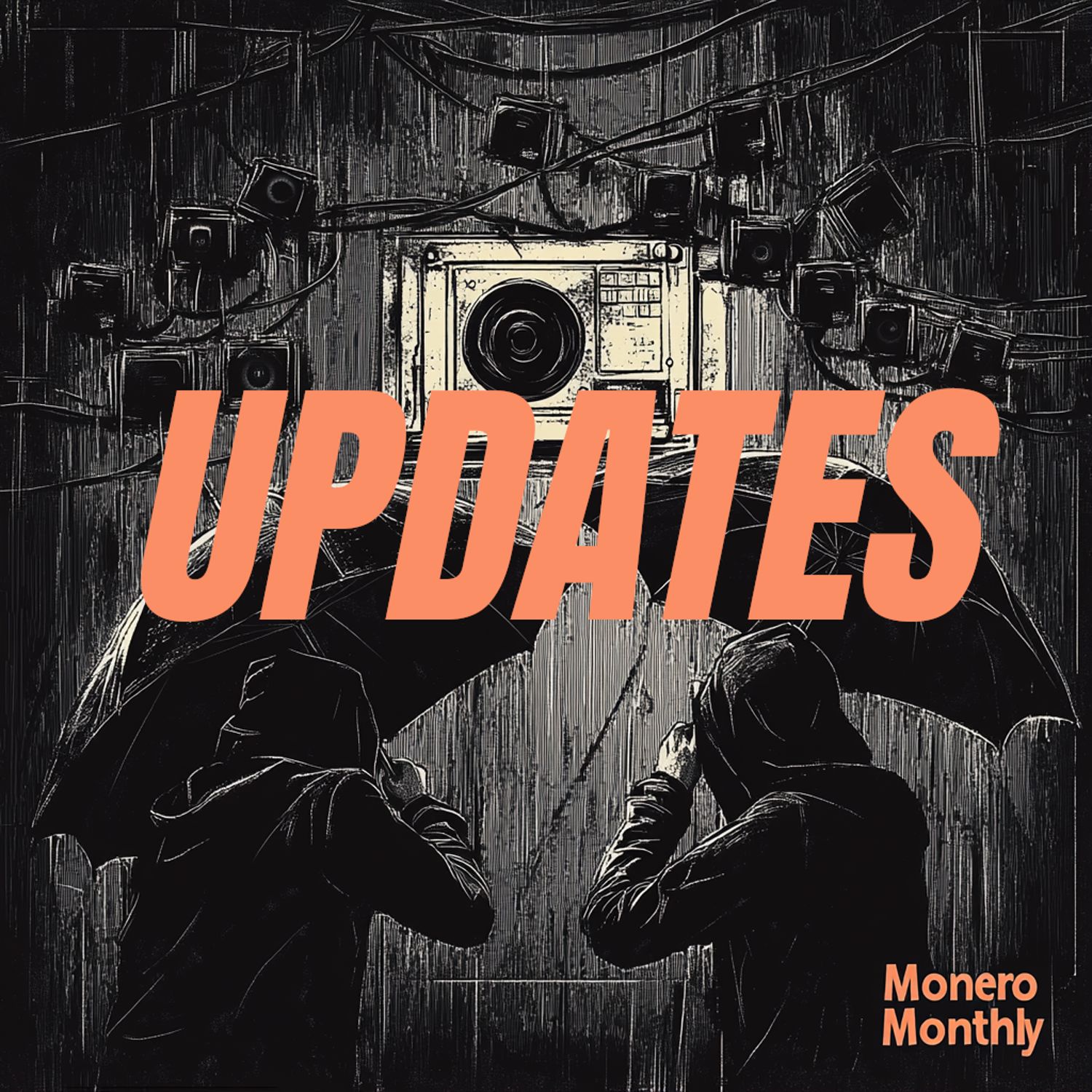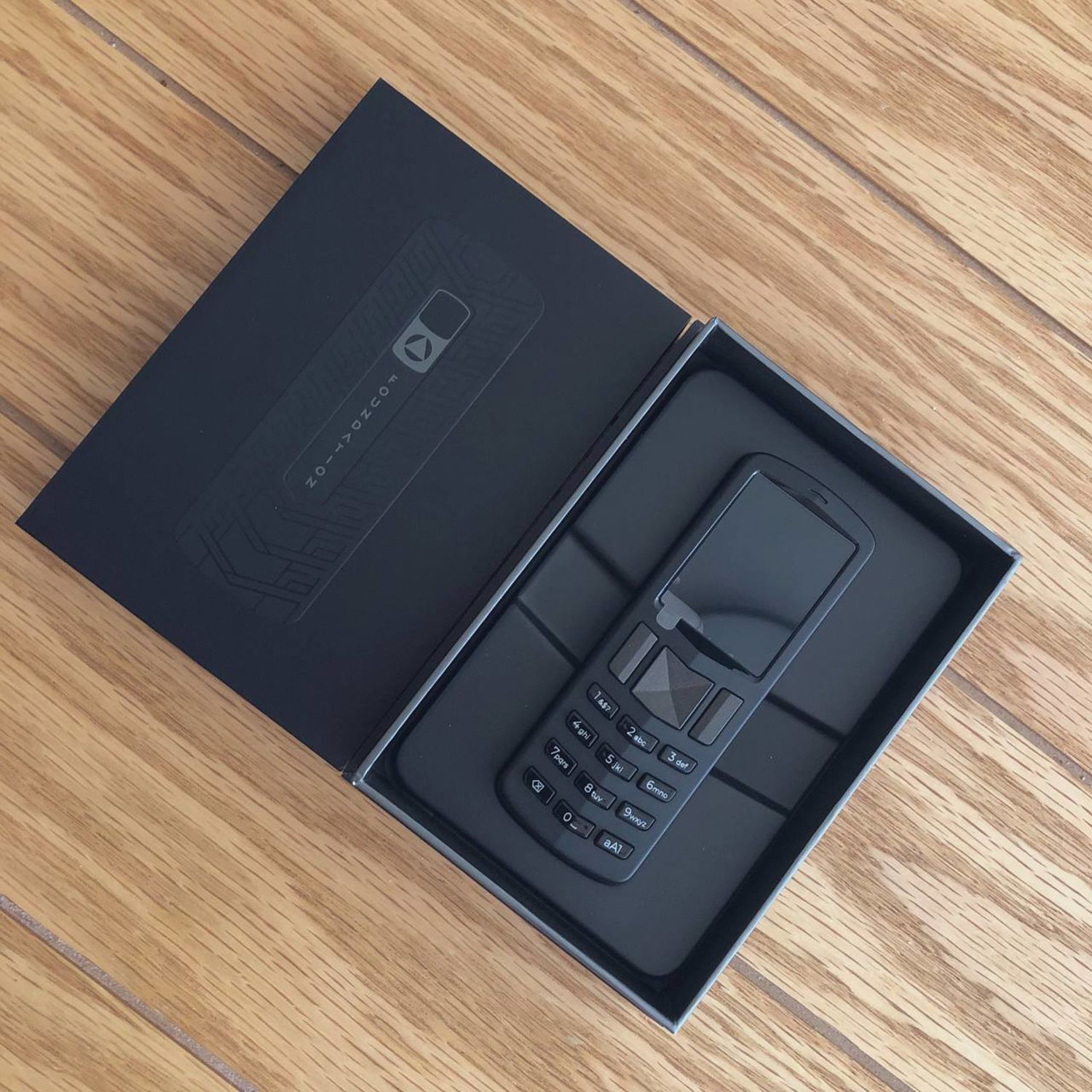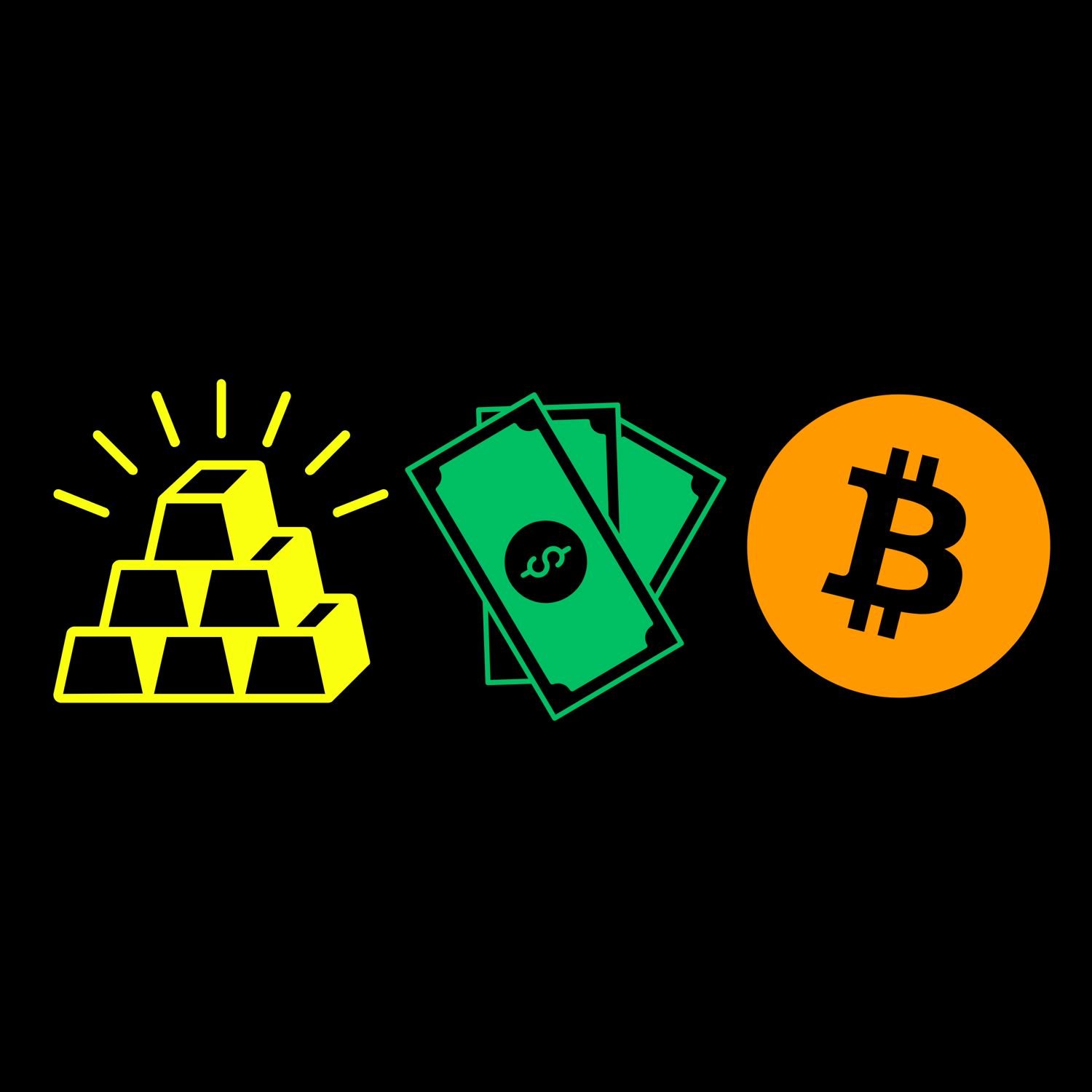Proposed Monero improvements
Detective Mining
Finality Layer
Time-adjusted blockweight
Software Updates (up to Aug 25th)
Cake Wallet v5.3.0
- Doge support
- Better swaps
- Broad continued UI improvements
Cake Wallet's Cupcake app now out of beta
- v1.0
- Bitcoin and Monero support
- Pairs with Cake Wallet or Monero.com
Stack Wallet releases v2.3.2
Haveno v.1.2.0 released
- https://monero.observer/woodser-releases-haveno-v1.2.0-mandatory-update/
- https://github.com/retoaccess1/haveno-reto/releases/tag/1.2.1-1
[[LINKS]]
VALUE FOR VALUE
Thanks for listening you Ungovernable Misfits, we appreciate your continued support and hope you enjoy the shows.
You can support this episode using your time, talent or treasure.
TIME:
- create fountain clips for the show
- create a meetup
- help boost the signal on social media
TALENT:
- create ungovernable misfit inspired art, animation or music
- design or implement some software that can make the podcast better
- use whatever talents you have to make a contribution to the show!
TREASURE:
- BOOST IT OR STREAM SATS on the Podcasting 2.0 apps @ https://podcastapps.com
- DONATE via Monero @ https://xmrchat.com/ugmf
- BUY SOME STICKERS @ https://www.ungovernablemisfits.com/shop/
FOUNDATION
https://foundation.xyz/ungovernable
Foundation builds Bitcoin-centric tools that empower you to reclaim your digital sovereignty.
As a sovereign computing company, Foundation is the antithesis of today’s tech conglomerates. Returning to cypherpunk principles, they build open source technology that “can’t be evil”.
Thank you Foundation Devices for sponsoring the show!
Use code: Ungovernable for $10 off of your purchase
CAKE WALLET
https://cakewallet.com
Cake Wallet is an open-source, non-custodial wallet available on Android, iOS, macOS, and Linux.
Features:
- Built-in Exchange: Swap easily between Bitcoin and Monero.
- User-Friendly: Simple interface for all users.
Monero Users:
- Batch Transactions: Send multiple payments at once.
- Faster Syncing: Optimized syncing via specified restore heights
- Proxy Support: Enhance privacy with proxy node options.
Bitcoin Users:
- Coin Control: Manage your transactions effectively.
- Silent Payments: Static bitcoin addresses
- Batch Transactions: Streamline your payment process.
Thank you Cake Wallet for sponsoring the show!
MYNYMBOX
https://mynymbox.net
Your go-to for anonymous server hosting solutions, featuring: virtual private & dedicated servers, domain registration and DNS parking. We don't require any of your personal information, and you can purchase using Bitcoin, Lightning, Monero and many other cryptos.
Explore benefits such as No KYC, complete privacy & security, and human support.
The business will fall victim to a ransomware attack every last seconds, eleven seconds. I am investigator investigator investigator. And I work supporting Our agenda for today, we're gonna start with just the basics of Monero. What it is, what it is, how it works, how it works. Monero is considered a privacy token.
[00:00:32] Unknown:
The world's most private
[00:00:34] Unknown:
privacy. Which means that in high, virtually all transaction details are exchanged. The world's most private
[00:00:41] Unknown:
privacy. Good morning, Seth. How are you?
[00:01:16] Unknown:
GM, sir. I'm doing good. Trying to not get dragged down into the morass that is Twitter, but I'm struggling. I'm struggling.
[00:01:28] Unknown:
I never thought more ass would be a problem, but it sounds like it is for you.
[00:01:34] Unknown:
Good double entendre there. Never never thought through the the sound of that word, but yes. Yeah. I'm getting too fancy. I know. Too fancy. You use more four letter words, more four letter words. Blend in over here.
[00:01:46] Unknown:
Get to the midwet level. You're fighting. You've got battles going on.
[00:01:51] Unknown:
You know it, man. You just Yeah. You say that people should learn about things. Man How dare you? You be so rude? I know. I Clearly, I am I am an enemy of Monero. We are recording this Monero monthly podcast. I am an enemy of Monero. It has been Okay. Okay. There are also many other names that I've been called, but I'll leave those off there. Yeah. But, yeah, fun times. Fun times. Things that I like, sometimes, you know, you you post a tweet, and you're like, this is gonna be controversial, but, like, it needs to be said. And sometimes you post a tweet, and you're, like, having a good day. And you're like, I I think this would be a good thing. Like, I'm just curious people's thoughts on this idea. And then you open Twitter later, and you're like, what the fuck did I do? What did I do? I had no idea what I was wading into when I, I hit set here, but good reasons for things. I'm glad the Monero community's having a vigorous discourse about all things security these days. It's good to have conversations around It is. Around how to improve Monero. That's that's been what's made Monero great over the years. So I'm not mad about the overall idea. I just think it's funny and sometimes ironic how upset people get if you just say that we should learn about things that people don't like. Yeah. But, alas. Can you give me a
[00:03:01] Unknown:
a very quick rundown
[00:03:03] Unknown:
for someone who's not really been on Twitter? Like, what's going on? Why are people so upset? What have you done? Yes. It's probably a a good easy segue into the main topic I wanted to chat through today. So the general problem that we've been discussing, and we've already talked about this 51% mining attack that's been attempted and more recently seems to have been not successful is hard to say because there was no actual, like, attack done, but multiple large reorgs of nine blocks plus the likelihood that they could have reorged more blocks than that but intentionally did not is concerning. Now we've been talking about this for a while, for the last month or two, at least, we've touched on this. But it's just brought up good conversations around how do we continue to improve the security of Monero. Like, a a persistent problem in Monero has been while I think the ASIC resistance is probably still the wisest approach, There are some downsides to the combination of Monero's price not appreciating in the same way as something like Bitcoin has over the last few years. And, obviously, mining being tied directly to the value that's provided and the actual return on investment mining Monero has not been good as long as I can remember, and there are many reasons for that. Part of it is Monero already hit its full emission, if you wanna call it that, and is now only in its tail emission. So there's a fixed point six Monero per block subsidy. So it's something that will happen in Bitcoin, but we still have quite a large subsidy in Bitcoin. Even if Bitcoin was priced far lower in Fiat, it would be much higher than Monero's. But then also, there are entities who will mine Monero and have no costs or very low costs, and that's essentially botnet operators. Like, if you have idle compute that you didn't pay for, mining Monero is essentially free money. So there will always be those types of entities that also push down the return on investment for legitimate miners who actually have cost electricity and cost of of hardware.
So this has been a long term problem. There's many different things discussed, but nothing really ever, like, firmly considered, I would say, until, really, the last few months as we've been kind of seeing this ongoing attack and thinking more deeply about it. So Mhmm. The thing that I mentioned on Twitter was one of the proposed approaches to how we can improve an error security is something called a finality layer. I incorrectly use the term not incorrectly. I unknowingly use the term proof of stake to partially describe it because that is one way that you can do a finality layer is that you still have proof of work, but that you put essentially a layer of proof of stake on top of that proof of work that just confirms blocks. And once that confirmation on the POS layer is done, that that block cannot be reorged out of the chain. So it's essentially protection against reorg attacks, against stealth mining. So that is one of the approaches. There's basically three that I'll briefly cover today, and we will definitely link to the proposals in the show notes so people can go read at length. Like, don't just hear the synopsis and rage one way or another, but, like, actually read the proposals, please. Because it's helpful for more people in Monero to actually understand the nuts and bolts of what's being proposed here rather than people just kinda hearing an idea and reading against it. But, yeah, the one that I was saying I liked the idea of was this finality layer idea. This was proposed by Luke Parker, also goes by Kai Abaner. He's been, like, an absolute legendary dev and researcher in Manero for years now. And his proposal was basically, we can do something like a finality layer. Like I described, basically, we keep proof of work. Proof of work remains the sole way to actually produce blocks. And then on top of that, we have a separate consensus layer that is something. It could be proof of stake. That's one of the potential approaches.
It could be something like everyone who's mined a block in the last x blocks gets one, like, quote, unquote, ticket as a way to become one of the validators. There are many different ways this could be implemented. Isn't that kind of like
[00:06:54] Unknown:
the cred? Yes. Did something similar. What was his name? I had a guy, Aussie guy, quite tall. He was really into Decred, and then he he went on to work for one of these Bitcoin companies. Yeah. Checkmate. Yeah. Checkmate. Yeah. Check Checkmate. He was one of my first people I spoke to, like, in maybe it was 2018 I recorded with him. And he was really into the Decred stuff. And I was like, look, man. I'm too dumb for this. Like, I I'm just, like, I'm I'm just sticking with Bitcoin, but, you know, fair enough. And that's kind of what you're saying reminds me of what he was talking about. Yeah. You're I mean, you're spot on. In my tweet, I referenced
[00:07:35] Unknown:
Decred's approach because I I have liked it for years. I actually was in Decred around the same time as Checkmate. Oh, okay. We had a lot of dialogue, and I did some podcasts with him and stuff too. So he's a he's someone that I I really respect as well. Yeah. He's a nice guy. I think he came to the same conclusions I did, which is basically technology is really cool, but there's no product market fit. Mhmm. If people want privacy, they're using Monero. If people want store value, they're using Bitcoin. Yeah. So I think he made the same assumption, and that's why he, like, he was always in it more for the store value, more Bitcoin esque things. So it made sense that he focuses, I think, solely on Bitcoin now. But I think so. Yeah. Decred's approach is really cool. It's kind of like this. Like, I talk I actually talked to Luke about this because I was curious his thoughts. It's not exactly the same. It's basically an approach that could be taken to a finality layer, but it's a little bit more complex than we would actually do in Monero. It's similar in idea, and that's why, like, that's one of the ways that I've been describing it to people. It's like, if you wanna see what this looks like, go look at Decred. It would be something like that. But it's Decred uses their staking system for a lot more for, like, voting on proposals. And there's there's a lot more complexity that would definitely not be a part of how this would be done in Narrow, but Decred is pretty similar in that idea. Apparently, Dash's approach, something they call, like, chain locks, is even more similar, but, honestly, I just never dug into Dash enough to comment on their their specifics. But it's a similar idea where there's, like, master nodes that Right. Agree on if a block is legitimate, and then they sign off on it, and that block can then not be reworked. And that provides a lot of advantages. So this is one of the approaches out of what I think are the three most interesting proposals right now. But this one is, like it's super generic right now. The proposal is basically, hey. I think this is a good idea. I would like to research this and write up essentially a small book.
Like, book is probably not the best term, but, like, a small doc site almost on Mhmm. What this could look like, various approaches, pros and cons, risks, that sort of thing. And so what I was saying in the tweet was just, like, I like this idea. I think it's been done really well in Decred, and I think it's an interesting concept. I would definitely be behind this proposal to learn about it and then show it to the Monero community and then decide from there if it's something we want to do from an implementation perspective. But that makes me obviously actually wanting to make Monero POS only, and I am evil and wanting to destroy Monero and part of the the government agencies seeking to destroy Monero because I want us to win. So Yes. Yeah. But there has been some, like, really good pushback and rebuttals and interesting stuff. Eric Voskull, who's a legendary Bitcoin OG, he has, of course, because he's written on everything that has to do with cryptocurrency. He has, like, a specific hybrid mining fallacy
[00:10:14] Unknown:
writing that he's done that kind of explains some of the issues that he thinks exist with this type of approach, which is really interesting, which I also tweeted. But, yeah, overall, there have been some good responses, but it's also it's just crazy to me. Like, especially, it's never accounts that I know. Like, it's never people I know in the Monero ecosystem. It's like these random Yeah. Accounts that come out of nowhere to get angry. Well, there's also, like, there's always gonna be a percentage that are bots. I'm sure Yeah. That's true. Just to create divide because the best way to take down a good idea and, like, a great community is to try and divide them. So I think there's some of that. And then also just most people don't read. Like, I'm one of them, but that's why I don't tweet and reply on things like this. I just go as above my head. I don't know. I'm not reading through the tweets and the papers and stuff and the rebuttals and then going like, oh, yeah. I like I've come up with my own idea here. I'm like Yeah. I don't fucking know. So then I just shut up. But other people I think it's probably, like, they heard proof of stake, and there's people there who are like, I would be the same. My monkey brain goes, proof of stake, fuck that. No. Eth, gay, shit. Don't want that. Proof of works better. Blah blah blah blah blah blah blah blah. And so that would be my initial response. But then I know that beyond that, I've got no idea. So I need to shut up. And I guess that's just what some of these other people need to learn. It's like, talk about the things that you understand. And if you don't understand, either go and learn or shut the fuck up.
[00:11:38] Unknown:
And that is so hard because social media is built to make you want to read three words and rage tweet because engagement rage tweeting gets you the better engagement, dunking on people, like Yeah. That is very much feeding the algorithm. So I definitely like, I understand people are also being preyed on by how social media works. I think also, like, I was just rereading the first sentence of my tweet, and it's so many in the space have thrown out the proverbial baby with the bathwater when it comes to POS. And, like, I know that probably many of the people who responded did not get past that sentence. They're gonna get triggered. Yeah. Yeah. They're you hit the nail on the head, like, ETH bad, POS bad. Yeah. Yeah. Yeah. This cannot be okay, and they're not gonna go read the GitHub issue that I linked and stuff like that. So part of that is my naivete of expecting people to actually, like, click on links and and read them. But like I said, there have been some interesting thoughts there in the GitHub issue. There's a a lot of, like, interesting back and forth where, again, anyone in the Minero community can chime in and get their thoughts heard. But, again, it is just essentially a proposal to learn more about what this could look like. What's the saying? Something like friction creates fire or something like that. Like, at least these conversations,
[00:12:48] Unknown:
yeah, there's a lot of friction. People are getting angry and stuff. There's always something good that comes out of it even if it's no. The idea of doing what you're suggesting is terrible, and here's exactly why. And then you go Yeah. Oh, yeah. Actually, now you said it like that. You're right. I think that we shouldn't do it. Even if it's that, that's actually great because it crosses out a potential question in the future. And Mhmm. Like we were saying, all these attacks, in a lot of ways, it's not good because you're like, okay. We've got these attacks. It's potentially harmful to Monero. That's not a good thing because we need it. It's a very useful tool. At the same time, if it can't survive the attacks that it's currently under, then I'm sorry. It's not gonna survive the attacks that are probably gonna come from governments in the future. And so this is like training. It's like, let's go through some pain in the gym. We're gonna get stronger. We're gonna get faster. We're gonna get smarter. Like, you have to do it. Otherwise, everyone is fooling themselves and playing pretend.
It's like playing dress up. It's like, I'm a knight or I'm a queen. I'm in this. It's like, no. You're gonna fucking lose if you go up against governments, and you aren't prepared, and you aren't having these conversations.
[00:14:02] Unknown:
So it's good. It's just annoying having to deal with it. Yeah. For sure. It's invaluable, I would say. And that's, like, one of the huge benefits of how often Monero gets attacked is we have to think through things. So I feel like many other projects just have not had to consider. Mhmm. Because if they shipped something thinking it was good and secure, which it might be, but it just never gets proven out because it's never attacked. It doesn't matter. Yeah. I mean, honestly, yes. Like, that is definitely a a common theme for me that reinforces how useful Monero is, is that it is frequently attacked. Like, it would not be attacked if it was not doing something legitimately good. It's a good litmus test of how useful a technology is or
[00:14:38] Unknown:
specifically, how much a technology is pushing against the status quo. Yeah. That's one of the big things that interest me so much about Monero. Like, especially when you got all the delistings and stuff, that was really a not a technical attack, but it was an attack where I was like, oh, this is obviously pressing some buttons here. This is obviously a concern. And then it's like, well, there's other privacy coins that are still on there, and it's like, well, maybe because they're not as fucking private then, isn't it? Do you know what I mean? It's like Or no one uses them. Yeah. Or no one uses them, so they're not a threat. It's once you start seeing this sort of stuff, you know, okay. This is seen as a threat. And that means it's a real thing. That means it's an important thing. So to get angry at trying to improve something that you care about is just silly. It's childish, and hopefully, people can grow up and come back with some more technical reasons. And, like, I know you well enough that if someone comes up with a technical reason why what you've said is done, you're not too proud where you're gonna argue for the rest of your life on something you no longer believe. You'll just be like, okay. Cool. Let's move on. Yeah. That's one of the cool things that's come out of this is, yes, most of the engagement has been useless. But the good engagement that has come out of it is two specific people, Eric Bosco, and then somebody who goes by Moon Settler on x, who's an awesome Bitcoiner, pointed out two huge things like Eric Bosco. The main thing in his hybrid mining fallacy
[00:15:54] Unknown:
that he writes is essentially if a proof of stake entity gets the majority of the supply, there's no way to unseat them. You can't spin up more machines like you can in proof of work. You can't rent more hash rate. You can't go out and buy computers. You have to buy the supply from someone. And if that someone is the majority entity who's an attacker, there is no way to reclaim that supply. So you're immediately forced to essentially hard fork away, freeze their coins, which then means the majority of the supply of the coin is gone. It's very catastrophic. That was a very good point. That is, like, starting, I think, to shift my thoughts on this. And then the other one was by Moon Settler who brought up the point that so in a finality layer system like this, one of the caveats that was brought up by Luke in his proposal, it probably wouldn't be something where everyone can join into the system. Because as you have more and more people in something like this, it gets harder and harder to actually find consensus quickly enough. And there's obviously just the complexity of, like, you would have to run a node. You would have to make sure that your uptime is really good, or you'd get slashed. Like, there's there's some downsides to proof of stake that are complex. And just like we've seen Ethereum and many other cryptocurrencies, most people choose to delegate their staking to someone else.
And in something like Ethereum and some others, there are ways to do this in a way that's trustless, that's not custodial. But Monero's lack of even basic scripting makes it very likely that you could do anything in terms of, like, pooled staking in a way that was noncustodial. So a lot of the risk would probably come from the user who just wants to earn yield on their Monero if this was a proof of stake system. Again, like, all of this is very much up in the air. But if it was a proof of stake system, those people who want to earn yield but don't have the technical know how or don't care about the specifics of securing the network and just want to earn the yield, they may just give them an arrow over to a custodian and give that custodian the ability to wield their stake in the way that they see fit in a way that just adds another centralization layer and more custodians into the mix and, like, could have a lot of knock on effects as well. So those two things were very good points that I think are helpful Yeah. For me and, like, honestly, for me, it may be much less high on the idea of a finality layer. But I still think that doing the actual, like, broad research is useful so that we can actually flesh out some of these things, confirm what would be useful, and that there are many other ways to do a finality layer than just a, like, simple proof of stake system. Yeah. So two other proposals that we can quickly cover that are both much more simple, much more easy to implement. In theory, neither requires any consensus changes. The first one, I think the most interesting one that I would like to see fleshed out more, and it seems like there's been really good dialogue around it. Potentially, some issues with it in reading through, but enough of an intro.
This idea is called detective mining. Fluffy pony, who's a Monero OG and Bitcoin OG, brought this up and proposed it in an issue on, again, the Monero Project Research Lab GitHub. The idea actually comes from a paper from 2019, which just didn't seem to get much traction. And the simple idea is basically this doesn't require any changes to consensus. This doesn't even require necessarily individual miners to do anything different. What this is is the simple idea of any miner who's mining maliciously, like, let's say, a pool, like Cubic's pool, they have to send work to people mining on their pool. So they have to say, this is what you need to mine. This is the previous chain tip. This is what we're mining on top of. And in sending out that work, they necessarily have to reveal any blocks that they're currently mining on top of. So they only reveal it to their workers theoretically. They can hide that from the network, but they can't hide it from their miners or their miners can't mine valid blocks on top of the block they wanna mine. So specifically in the attack that's been going on, which is the stealth mining attack or selfish stealth mining, the goal is to mine a bunch of blocks in secret in parallel to Monero's chain, but with more proof of work and then publish them all at once to do a reorg attack.
Detective mining is the idea where pools or individual miners potentially will use some interesting things to basically pretend to be a worker on these potentially malicious pools. And if that pool gives them a chain tip that is different than the current live network known chain tip, they can essentially start mining on that chain tip and immediately publish any blocks that they find, which forces the attacker to constantly be revealing the blocks that they're mining in secret to the network or risk losing all of the subsidy of those blocks. It's a really interesting idea because, like I said, there's no consensus change. There's no algorithm change. There's no post. There's no there's nothing really additional on top of it. It just essentially removes much of the potential income and ability for selfish mining to exist by basically just having pools improve their software to do this. There's some specific figures in the link that people can go to on, like, how much this changes their income, what this would actually look like for post to implement, how this could work. And there is a lot of back and forth in that thread. Like, be prepared to do a lot of reading if you actually wanna dig into what people are thinking and talking about and saying about it. But really cool, even the authors of that paper have jumped into the issue and shared a like, an improved version of the paper that they had published that no one had seen and have been chiming in on potential issues there too. So it's a very interesting approach. Probably hadn't seen it because often you don't care about things until you're already under attack. You kinda put things off. It is like, oh my god. Where's our first aid kit? I I desperately need it. I'm gonna die. Well, you should have thought of that fucking six months ago, mate. Like, do you know what I mean? You just don't think about these issues. So there's that. Why you were saying that? Like, this is probably really stupid, but I just wonder. You've obviously got this ASIC resistance,
[00:21:26] Unknown:
and I understand some of the reasons why you might do that. It would there not be a way to sort of well, I'm not gonna word this right, but split the rewards where a percentage can be mined with a six and a percentage can be mined without a six, and it's kind of like two separate partitioned parts of mining for Monero. So one wouldn't interfere with the other because you're still mining for a percentage of that split, so, like, 50% or whatever the split is. And to either have Yeah. Monero a six because then there's the sunk cost of buying the ASICS, which protects against attacks for people who have spare CPU. It also, in my eyes, protects against, like, big government attacks to some extent because the amount of money that they have to throw at this and also the way that it can be tracked in terms of ASIC sales, it makes it a bit more obvious what might be going on. So either doing that or having some sort of way that Bitcoin miners can be involved
[00:22:33] Unknown:
and be mining for Monero as well using that hash rate. Is that a really pointless and stupid thing, or is there any merit to thinking along those lines? I think it's it's definitely an interesting approach. It's what I think, GRIN, if I remember correctly, tried to do back in the day. I apparently, they still exist, so it must not have failed catastrophically. I I don't know I don't know exactly what happened with that, but I know that that was what they did was their plan was essentially starting GPU mined and then having these, like, transitions slowly to ASIC mining with it being percentage of the block reward goes to blocks mined with this. I think also if I remember correctly, Tari, who we talked about before on the show, which is merge mine with Monero, they do something similar. I think they have, like, three or four different algorithms right now where some of them are merge mine with Monero, some of them are not merge mine, but are still random x, some of them are GPU, and I think they're also trying to do maybe an ASIC specific. I can't remember those specific details off the top of my head, but it is definitely an interesting approach. And to me, the most interesting one when it comes to, like, what can we do with the actual proof of work to improve security. Because unlike many people in the Minare community, I actually think there are a lot of benefits to ASIC mining. But the biggest problem has always been Bitcoin got this perfect road from CPU mined to ASIC mined. Maybe perfect's not the right word, but, like, an almost seamless road because those things essentially became discovered as part of Bitcoin's journey and how proof of work function with something like Monero nowadays or even Monero back when random mix was implemented.
ASIC mining is already very well understood. FPGA mining, GP like, everyone knows all of this. There are companies that can build ASICs very quickly. Like, it it was it's much riskier for a small network to just suddenly be ASIC mined because it presents its own drastic centralization risk, where all of a sudden, do you have more than one manufacturer of ASICs? Can you broadly get these ASICs in multiple geographies? Like, how exactly do you handle this process so that it's not just, like, Bitmain in China suddenly controls a 100% of Monero's network cache rate? You you obviously can't just become ASIC mined or just allow ASIC mining to be done by one entity. So maybe something like a slow transition from Random x to ASIC mining that progresses over time and incentivizes ASIC manufacturers to compete and gives lots of opportunity for ASIC to saturate the market. Maybe that is a useful route, and I think would be a very interesting one to explore as well. But that's also one of those, like, Bitcoin has these things that feel untouchable.
Asic resistance kind of feels untouchable in the Monero community. Just like, honestly, proof of work versus anything resembling proof of stake is pretty untouchable, I think. Yeah. Yeah. That's why I think it's interesting to explore, not necessarily interesting to actually do unless the findings are very good. But there's some of these things that are, like, almost a core part of the social contract that get very difficult to change. But maybe, again, that kind of, like, slow transition,
[00:25:26] Unknown:
if all of the pros and cons are laid out very well, could be a useful approach. I get it. You know, when I think about these things, I don't have the ability to think them through to the issues that can be down the road. I guess I was just sort of thinking Bitcoin has a huge amount of hash rate. There are a lot of people in Bitcoin who care about Monero more than admit that they do, and I think that will continue as Bitcoin becomes more suited and booted and KYC'd. Monero is gonna become more and more necessary for a lot of them to use. When I think about these attacks attacking Monero to me, and I can be completely wrong here, but it seems like it's a lot easier than attacking Bitcoin because of the amount of hash power that's there and the amount of money that's in it. I'm just thinking, like, if there was some clever way that Bitcoin miners could somehow support the Monero community, use some of their hash power to help secure that network, but also earn from doing it because it's not only Monero miners that are struggling. Being a Bitcoin miner is really tough as well. If you wanna actually be a smaller miner like a pleb miner, it's very tough to be profitable.
So, you know, that's something that me and John talk about all the time, and I'm just I don't know. I just wonder. And, like, there's nothing technical past that where I can explain it. I just I feel like they're two very important projects, the most important projects by far to me anyway, and I just wonder if there's a way that there can be some more symbiotic relationship between the two somehow. I don't know how.
[00:27:02] Unknown:
Yeah. I mean, something I think someone has mentioned as well is could Banero just be merge mined with Bitcoin? Is that an interesting alternative for us? I know that there's a lot of claimed issues with merge mining and its security. It is interesting that so far, it seems to have been pretty good for those projects that have merge mining with Bitcoin. But those are, I think, generally smaller projects that aren't gonna be undergoing the same kind of attacks that Monero is. But that is an interesting approach, and that is, I think, one of the things I actually mentioned as something that will be researched in the finality layer is, like, in the finality layer book that Luke has proposed writing is what if we just make some other cryptocurrencies consensus mechanism our finality layer? Like, what if that's Bitcoin? What if that's Ethereum? Like, what what would it look like to just offload finality to another chain through something like merge mining? And that's, again, something that I think would be worth exploring. I think tricky also because the Minare community is so, like, not when I say Minera community, I mean, some of the Minera community, obviously, on all of it, but much of the Minera community is extremely hostile to Bitcoin. So the idea of Bitcoin miners now mining Minera and it being difficult for the average Minera person to mine Minera because whole mining with Bitcoin is still not easy even if it's gotten more interesting with some of the whole miner stuff. It's still not easy. So, I mean, this is, like, arguably the hardest problem to solve when it comes to technically, like, how do you make a cryptocurrency secure? It's like, what consensus mechanism works best? What algorithm? How do you handle ASICs? Like, these things are very difficult questions. So they're not gonna be solved overnight, but it has been good to see these discussions happening. And I will just, like, call out one more thing too. You mentioned, like, these things don't get looked at until you feel the need. I definitely agree, but, like, not because of, like, laziness within the community, but rather there were more pressing things. Like, Madero is always undergoing attacks. Yes. And we have, obviously, this clear identity of providing strong privacy to everyone. So, obviously, the bigger focus over the last few years is how do we improve on ring signatures that became full chain membership proofs, which we've discussed at length. And so most of the effort and focus of the community has been on that side of things and not on ring. And now, unfortunately, this will divert some thinking some time away from FCMP and other things. No. I think FCMP is a is that a good state that it's not that's not a problem. It's actually a pretty good time to be able to start thinking, especially from a research side of things on other things. Now that FCMP is pretty much set in stone. But, yeah, it's it's tricky because you have limited researchers. You have limited devs. You have limited mind share of the community. Yeah. What do you focus on, and how do you focus on things before they're a problem is incredibly difficult. And I think Monero over the years has done a very good job of that, but that also doesn't mean that every decision that's been made has been perfect or that there was even a way to prevent these things ahead of time. Like, there might just not have been enough dev resources or something to implement one of these fixes ahead of time. So it'll be interesting, but I'm I'm glad that there's seemingly some really good ideas coming out of it that need to be fleshed out more and a lot of good discussion happening around that. So there is just one more that I'll briefly mention. I haven't had the time to really deep dive into this, but another interesting idea for improving Monero's security against specifically these selfish mining, stealth mining attacks that we've been having is this idea of time adjusted block weight. We will link the tweet in the show notes so people can go read more into it. Basically, the idea is on your node so it's not a consensus level change. But on your node, obviously, you have a view of what time it is. Hopefully, your node is in sync because synced time is incredibly vital to running a cryptocurrency node. The idea is essentially that your node records the time that you see a block arrive. As those blocks age, you essentially, like, increase the amount of work that you require to accept another block as valid building on top of that. And this basically just makes it harder for someone to mine in secret and then publish all of those blocks at once because you will have been incrementing the difficulty locally for what blocks you'll accept. There are a lot of potential downsides to this, so I'm not sure it's actually practical, but I do want to see more thought around it. The main downside is this would make it much more likely that nodes would just orphan blocks because there was too long of a gap between blocks or because their time is off. Like, if your host time is off, you might think that Monero is being attacked when in reality, those are just valid blocks. And so you might be invalidating blocks and forking your note off the network regularly.
It also makes it much harder for in the event of a, like, a long rework, it makes it much harder for the Monero network to get back to consensus. So there's some downsides, but it's an interesting, again, nonconsensus change. So it could be quick if it's found to be useful implementation. So it's an interesting idea. We'll definitely link it as well. Go read up on it and chime into the conversation because, again, it's good to explore these things or game them out, figure out if they're good, bad, ugly, whatever, and grow from there. Definitely. Okay. Let's roll on software updates, and we'll we'll get to some chats and boosts. I know we spent a long time on the topic this morning, but That's a good one to jump into. Obviously, an important one. Yeah. For sure. For sure. So just a few updates. Nothing crazy in the the Monero ecosystem. A couple of quick cake wallet ones that I will mention. We didn't have a ton of Monero specific things in version five dot three, but it just went live yesterday as of recording this in August 28. The main thing that would be pertinent to Manera users is that we've improved the swap flows. Basically, just making it easier to swap between cryptocurrencies, continuing to try to think about how do we make things simpler and more intuitive within Cake Wallet. So there's a lot of other UI improvements in there. Specifically, there's a lot of improvements that pair well with Cupcake, which we haven't talked about a lot on the show yet. So I'll just briefly intro. But Cupcake, we released fully. It's not in beta or anything anymore. We released version one point o about two weeks ago now. And the idea is that, basically, this is a fully offline app. It has no network permission or ability to request access to the Internet. And you would use an old phone, be that an old Android phone, old iPhone. If you want something more hardened using something like Graphene OS on an old Pixel or something would be a great fit. And you can turn that old phone that you already have into a Bitcoin and Monero hardware wallet. But Sentinel.
[00:32:56] Unknown:
Yes. Because you could pair that with Samura wallet and use Sentinel as, like, an offline signer. Right? Mhmm. Yeah. Yeah. I think I never actually used it that way. It was like you'd have it separate, and that would just be offline, and then you can pass that transaction across and send it from Samura. That was the idea. So it kind of was like turning your phone your separate phone into a hardware wallet. Okay. Yeah. It would also track you could put in all your ex pubs and look at everything all in one place as well offline, which was quite nice. So you could see, like, full balances, like, across everything. It's pretty useful. I mean, it still is. Yeah. If it's offline though, how would it see balances? I think you couldn't send. You couldn't send. I think you just had x pups in there. Oh, okay. It was a watch only wallet, but not necessarily offline. I think it was a watch only wallet that obviously had to have a connection to see transactions, but you couldn't send from there. And then you'd create the transaction there and then send it from
[00:33:51] Unknown:
samurai. Makes sense. Yeah. You'd sign it in samurai and then broadcast it. Yeah. It's a similar concept. I'd say cupcake is built to be just that signing portion. Right. It is not on its own a watch only wallet. I mean, it has no network access and very intentionally cannot. So it's it is a little bit different and that it's a much more, like, focused on one goal app than Sentinel would be. You can actually use, like, one of the things in five dot two and five dot three and cake wallet is now you can do watch only wallets for Bitcoin and Monero, and we'll continue adding support for that. So now you can use cake wallet to also do the kind of sentinel like watch only aspect of things. And the reason we implemented that was because that you need that in order to use Cupcake. You need something that will be the software wallet to pair with the, quote, unquote, hardware wallet of Cupcake. But, obviously, all your keys live on Cupcake. You can either generate them there or restore them. They stay offline. You could keep the phone totally offline. Like, an approach, if you wanna be more hardcore, is you could download the APK and verify it on an online device, put it on a flash drive, and then install the APK from the flash drive and never even bring that device online. Yeah. You can go pretty hardcore. I mean, the downsides to that would be Android security against attacks can reduce over time. So you would really wanna keep the OS up to date, honestly, so that you don't open up your device to some sort of, like, a zero day pin bypass or something that lets some attacker get past the security of the phone to the app. I mean, even then, they need to then know the pin to Cupcake, and there's protections there as well against brute forcing. But there's a lot of potential things you need to think about. But I think for most people whose threat models are not super advanced, just the ability to turn an old phone into essentially a hardware wallet has two huge advantages. One, obviously, cost. If you already have the old phone, at least people like me, I or always have old pixels lying around from graphene and from old things that I've been doing. So no cost, but even more importantly, I think for most people, especially in the Monero community, but often many people in the Bitcoin community too, is you can have a hardware wallet with no entity knowing that you have a hardware wallet. Yeah. Like, that has been one of the downsides for years. And companies like Foundation do this well, so they purge records of shipping address, that kind of thing Mhmm. After a short period of time. If I remember right, it's thirty days. I should know that. I think so. What I like is when they bring devices to meet up, and then you can go and buy when I went and bought mine, I went and bought it in person and paid with lightning. And I was like, that's Nice. Pretty good. That's as good as you get without going to the extremes. Yeah. I mean, the only thing you can do better than that is, yeah, just using a phone or a a seed signer or something like that. Yeah. And conceptually, this is, like, similar in many ways to seed signer because, again, it doesn't have that clear footprint. You have enough Bitcoin that you want to hardware wallet, which, like, anyone who is affected in the ledger leak or others, like, can understand how painful that can be. So that's definitely a huge advantage here. I'm definitely not saying that there's no need for hardware wallets anymore. Like, I'm preorder to Prime. I'm absolutely gonna be rocking a Prime, and I'm excited to bring Monero support to Passport Prime. But it's, I think, fitting different use cases. And for many people, they don't need all of the advanced functionality or the extreme security that a hardware wallet brings.
They just need something to help them not have keys on the device where they have TikTok installed. Scary things like that. Yeah. So I think this is, like, it's a good bridge, and it's especially, like, global south places where spending, like, $300 on a hardware wallet is, like, half of your year's wages. Like, if you've been saving up some stats or something, you probably shouldn't be spending those on a hardware wallet, but you probably do have old phones lying around. So a lot of good interesting uses. So we've been excited to finally bring that out and keep improving it as we go. Very nice. Yeah. Two more quick updates. So Stack Wallet release version two dot three dot two. As far as I can tell, there's nothing specific to Monero in the release, but just cool to see them continuing to improve Stack Wallet, Stack Duo as well, which is their Bitcoin and Monero only wallet. Mhmm. They've been doing awesome work. I've known Diego or Rerar as he goes by for years and years. He's one of the first people I got to know in the Monero ecosystem. He's a Yeah. He's a nice guy. He's an awesome dude, so I'm excited for them to keep growing and improving what they've been building out. And last update, like I said, we're doing a ton this week, is Havan o version one dot two dot o was released. It was technically the last July, but bringing it up because Haveno itself and then RitoSwap, which is built on top of the Haveno protocol, both have implemented this, and these changes are mandatory. You can think of it like a hard fork. Like, obviously, Haveno is not a cryptocurrency, but it's the same kind of idea where it's not backwards compatible.
So in order to be able to actually take recent trades and make trades, you need to make sure that you're updated to version 1.2.0 if you're using Avenue itself or I think 1.2.0 as well for, for Rito swap. So you'll need to run 1.2.0 in some way in order to continue using Haveno, but lots of really good improvements there. They also lowered the minimum trade amount. So if you're just trying to get started in Monero, you can get amounts as low as 0.05 XMR. Okay. So there's a lot more room there to actually just get started with very small amounts and start playing with it. Yeah. That's very good. Yeah. Lots of good improvements there. Still one of the absolutely best tools out there, best ways to acquire or sell Monero. Do it in a privacy preserving way. So Nice. Definitely recommend people check it out. Very nice. Well, if that's all of the,
[00:39:08] Unknown:
updates, should we jump into
[00:39:11] Unknown:
XMR chats and boosts? Let's do it. Let's do it. I know we have even extra this week because we missed some last week with XMR chatting down. So Yeah. We have a good laundry list to go into.
[00:39:22] Unknown:
Right. So we got XMR chats and boosts. Oh, what a way to start. Barn miner with 0.025 XMR. Monero monthly boost. Lightning sucks. Okay. Fountain is custodial gayness. Use something else if you are a listener. Max gets a pass because they helped his dyslexic ass in the beginning. I have an aluminum garage door. He's such a twat.
[00:39:53] Unknown:
I was trying to think why he said that about the door, but then it was just for your accent Yeah. I'm assuming. Yeah. He throws them in all the time.
[00:40:02] Unknown:
Thanks, Barb. Schrodinger with 0.02 XMR just does little whirlpool, whirlpool, whirlpool, web wipe with 0.01 XMR. Monero monthly boost. Web wipe is doing a privacy meetup in Nashville on September 20. The location will be Diskin Cider from 06:10PM. It's 1235 Martin Street, Nashville, Tennessee. We'll have a presentation on Monero tools, Bitcoin tools, and more. Amazing.
[00:40:42] Unknown:
That sounds like a good one. They they are doing fantastic work. We sponsored a meetup that they had in Charlotte, I think, last month or the month before that, and text from our team went out, and he said it was really, really well done. Nice. More intimate, smaller meetup, really good content. They cover a ton of different stuff. Yeah. Definitely recommend it. They seem to be focusing on what matters.
[00:41:03] Unknown:
Really, really cool. Colonial with zero point zero one eight XMR. Shit. I completely forgot to send this earlier. I love you guys. Well, we love you too. Thank you very much for the, XMR chat. Doctor Zavargo. Max, it is unfortunate that dogs get hard forked. Perhaps that is partly what makes them sweet to be around. Yeah. Thank you, mate. I had so many messages. My dog, had to put him down a few weeks ago, and I'm a bit, like, overly emotional about my dog. He was, like, honestly, probably my best mate and had so many nice messages from people either in the boosts or XMR chats or DMs or on all the different platforms. It was, it's pretty sweet.
[00:41:49] Unknown:
Also crazy to see how much people love their dogs as well. It's real. It's real. I'm glad that people have been so supportive of that. Yeah. It's one of the things that I love about the community you've built is, like, it's actually a community. Like, it's not just
[00:42:01] Unknown:
not just privacy stuff, not just Bitcoin and Minero, but it's, like, people who actually like each other and shit talk each other and also support each other when they go do hard things. Yeah. It is. It's essential. When there's, like, real problems as well, like, the last couple of months in Fiatland has been horrendous for me. And I honestly like, I've been shocked by the amount of people that have helped me and the level of help that I've received from people, mostly people that I've never actually even seen in person. Like, we don't know what each other look like. We've never met. We've never shook hands.
And the amount of support is more than honestly, like, I've seen from family. So, yeah, it's it's pretty incredible. So thank you to all the ungovernables. We we really do appreciate it. Toxic hodler says spread Monero like a global contagious disease. Buy, hodl, mine, spend, repeat. Stay toxic, HODLer. Great advice. Schrodinger with zero point zero five XMR says, hashtag free samurai. On that, is there any way that they can get, like, a pardon or something like that? I know this is a bit of a probably something we'd normally talk about in another show, but I'm just thinking, like, is there any way that they can get, like, a presidential pardon at this point?
[00:43:21] Unknown:
Yeah. As far as I understand it, it is possible. I don't think that you, like, forego a pardon by pleading guilty. Right. Okay. I am definitely not a lawyer, so I could be wrong. But I think that a pardon is possible. I'll be quite honest. I don't see any chance of that happening. Yeah. But it is something still to hope for. Yeah. It's just also a very different case than Ross's and, obviously, unfortunately, much more lower profile. Yeah. I think that's the only way because, like, I think we touched on in on Freedom Tech Friday right after that plea deal happened. Part of the plea deal seems to be that they can't appeal it either. Right. Okay. So there's no, like, they can't take it to another court and appeal it and try to get out that way. So part of the plea deal appears to be that they're saying we will not and cannot appeal this later. But that doesn't necessarily mean that a a pardon couldn't happen. That's right. It's unfortunately, pretty unlikely. But we'll know more. I think the sentencing was gonna be, like, November 6 or eighth if I remember right. So We should see. I'm sure we'll be covering that on on Freedom Tech Friday more when that happens once we actually know the details. Because the plea deal does not necessarily mean what the sentence will look like. So we don't know what that will be. It's basically just a recommendation at this point. So we'll see.
[00:44:30] Unknown:
Well, nonetheless, hashtag free samurai. Mobster says, love this show. You're so right about the different feel of community in the XMR space. No paper xenia thrown around, less hype. Could you tell SMTH about your personal view on exposure to Bitcoin versus XMR? Any view on allocation? Yeah. I guess so. I mean, I'm still heavily, heavily, heavily weighted for my savings in Bitcoin. I genuinely just use cash and Monero in the exact same way. Like, I keep a bit that I use for spending. I'm not investing or moving funds that I previously stored in Bitcoin across to Monero because I think it's a better investment.
I just think it's better cash, so that's what I use it as.
[00:45:23] Unknown:
Yeah. I again, everyone always hates me. Monero people probably won't want to hear this, but I am essentially the same. I like, the the thesis I put forward in 2020 was not one that I thought I would adopt Mhmm. But I thought would be the most common one for the average person Yeah. Which is saving in Bitcoin and spending in Monero. I would love to save in Monero. If I'm just completely honest, I would have a lot more money right now if I had saved in Bitcoin Yeah. All the years that I was in Monero, and that is sad. I don't think it should be the case. I don't think necessarily that Monero cannot be a store of value, and people have made very good arguments through I can. And, technically, I think it it could arguably be a better store of value, but it it just hasn't proven itself to me personally. Mhmm. And so I save in Bitcoin, spend in Monero.
[00:46:12] Unknown:
Do what works. Like, it's there's no point in fighting an uphill battle. It's like, as a general rule, Bitcoin is a better store of value. It has been. It doesn't mean it always will be, but it it has been. And so do what works. And if you wanna spend, Banero is much, much, much, much, much better for privacy. Totally different fucking league. So use that and just do what works. It doesn't have to be more complicated than that. I think sometimes people like to say, oh, well, you should put your heart and soul into this thing. And if you believe that it's better privacy and that it could be better money and better for the world, then you should keep all your savings in there despite the fact that it's not going to probably hold your wealth or increase your wealth as well.
That's what you should focus on. It's like, no. Actually, what you should focus on is feeding your family. That's what you should focus on. Yeah. Feed your family first. If you're a billionaire and you wanna go around and make decisions that aren't gonna be so good for you financially and you can afford to do that, then that's fine. But feed your family first and probably save them Bitcoin and spend a Monero.
[00:47:18] Unknown:
Yeah. The only thing that I will call out is that some Bitcoiners, one of the few good anti Monero points that I've heard, is if a coin cannot prove itself as a store of value, it will very rapidly not become a a means of exchange, a method of exchange, because merchants won't want to actually hold it, and so they won't want to support it. I think that is a very interesting thing to think about. Yeah. I'm not necessarily saying that's true, but that is probably the most compelling use lightning, not Monero if lightning's actually usable and provides good privacy, which those are huge caveats. Yeah. Yeah. But that's, like, the most compelling argument that I've heard, and it's one of those things where, like, it does kinda give me pause of, like, what changes, what does make Monero a store value enough at least that it continues to prove itself to merchants as something that they should accept. Right now, I think merchants do accept it because it's so widely spent. Yeah. But I think there is a potential, like, stop to that if Monero's price does not improve. But even, like, one of the boosts you're gonna get to later is talking about how Monero has been up more than Bitcoin over the last twelve months. Like, it's it's really hard to talk about this stuff if you're especially just following recent emotions. But, yeah, it's interesting. It's interesting. Q and a with 0.003
[00:48:27] Unknown:
XMR says, I do use Monero. Smiley face, smiley face, smiley face. Oh,
[00:48:35] Unknown:
q and a. Did you know this about him? It sounds like him. It looks like his signature too. Mhmm. The letters QNA? Like, I mean, that's Mhmm. Who else could have sent that? I don't think anyone else. Have been him. No one else can type those three letters. Exactly.
[00:48:51] Unknown:
That's good. We've annoyed you enough you've started using it. It's good it's good to know. It's coming out party. There you go. His second one. Fountain boosts, late stage HODL with 5,000 sats. I'm glad I'm able to remind you of things you said last month. I also don't remember what you were referring to, but I just appreciated the statement about screeching fucking mongoloid. I had to rewind it to listen to ensure I got it right. Thanks for all that you do, especially the squawking. We missed you both at Lake Satoshi. I missed you. I've I'll get there one day. Shadowy Superbadger screamed 600 sets.
Rog, r o g, at SC Bitcoin said, interesting as always. Cake wallet is great on Android, but on my Linux, it seemed to install. Then on Next use gave errors, and I couldn't get back in. Don't know how to delete it and reinstall it. That sounds like a Linux thing to me. That's my experience with everything I ever do with Linux, not necessarily k wallet, but maybe you know more stuff.
[00:50:05] Unknown:
Yeah. It depends so much. And this is a sucky part of Linux because it depends how you installed it, if you use the flat pack. There's so many potential variables that it's hard to comment on right now. Okay. What would be best? Our support are great, and they have dealt with Linux issues, and they can definitely help. So please, like, email us at support@kqualit.com or use the chat in the app. Like, if you have the app on your phone, you can just jump straight into a support case there. Okay. We'd love to help you. This is one of the things that, like, we are rebuilding the desktop apps from the ground up for the rest of the year. That's a huge focus for us, and some of that will be packaging on Linux. We've already worked on and fixed the installation strangeness with Windows, which is its own stupid obscene process. Yeah. It would be Linux obviously is, yeah, it's more technical, less political, but Windows basically just pay the right people, improve your company, and you can have people install whatever you want. Yeah. We will continue improving this. I know we've also had some fixes out in the last few versions for some Linux bugs that people have run into. But, yeah, reach out to our support. They're awesome 247.
Real people can't beat it, so they'll help you out. Very nice. We also have Turkey,
[00:51:12] Unknown:
Bitcoin Lizard, and Open Mic, all streaming sets, so thank you very much for that. Jean Evera says, Monero is currently up 100% in the past twelve months. Even more gain than Bitcoin over this period. Under attack, question mark. Talk about clickbait titles. I expect better from you too. I always love a a message from Gene because it you're always under attack. You genuinely are under attack from him. I don't think you ever get, like, a, hey, guys. Love you. But I appreciate that. Monero
[00:51:48] Unknown:
has done very well. Actually, probably when he sent that, it was a little bit better than it is now. I mean, it was under attack, so I don't know what to tell you, mate. Attack doesn't necessarily mean the price changes. Yeah. That was an interesting part of this is even when the attack was more successful than it has been, there wasn't really a price change at all. No. But I think a lot of that is Monero is just not something many people speculate on. Yeah. It's mostly people using it. And if you're buying and selling stuff with Monero, there was no actual impact to using Monero No. From this attack, from how it was carried out right now. Honestly, 99% of Monero users don't even know. Yeah. Because they're not on Twitter. Like, they're not Yeah. They're not there, like, following, like, oh, no. Like, what's happening with this? They're just using They're just using it. Not noticing that there's a problem. Yeah. But, yeah, it's it is always interesting to see, like, what will be problematic to price. And Yeah. So far, this hasn't really been there was some drop, but it's also hard to attribute, like Yeah. It's hard to tell. Was that just a general drop? Was that because of this? Who knows? Gee never again.
[00:52:47] Unknown:
This Monero fear mongering is not going down, but ended up being interesting. Listen, regardless. Sorry. Oh, wow. Listen to that. Listen to that.
[00:52:59] Unknown:
Price answering us live. Sorry.
[00:53:02] Unknown:
Sorry. I assumed you meant price attack in my previous comment. Actually listened, and it's okay. But definitely still a little click baity, smiley face. Thank you, Jean. I you know what? I appreciate that. And it probably was a little bit tiny bit, but, you know, you gotta get the listeners in so they get the real signal. Yeah. You're a podcaster now. Exactly. Gotta gotta lean into us full time. I need to see the faces with your AI generated face, mouth open, and such shock on all your YouTube videos. Gotta lean into it. I don't think that's ever gonna happen. We're sort of we're we're midway there. Pies Hey. Chingity ching.
Says strong-arm, strong-arm, strong-arm, mushroom, mushroom, mushroom. And then thank you to all the baller streamers, PoeJAN, Meeze, for streaming 16,000 sats. Caz peeled streamed 1,800 sats, and our mate, shadowy super badger, streamed 1,530 sets. So thank you to everyone who's been sending in boosts and next in our chats. We really do appreciate it. If anyone has any questions after this show with the things that we dug into, we can answer them on
[00:54:16] Unknown:
the next Monero monthly or, actually, we're recording we're gonna be live tomorrow. So Yep. We'll be answering some questions, I'm sure, on this anyway. But, yeah, this won't be out for a week, so we'll be answering them on there probably. Yeah. I would definitely say too if if you have a, like, a general topic that you as a listener want to hear covered, anything Monero related Yeah. Chime in. Yeah. We can we can definitely cover that. So far, we've pretty much been just selecting the ones that we think are most useful in the moment, but more than happy if someone has a good topic idea to to dive into that. You can hear me rant on some random thing that you forced me to rant. Thank you.
[00:54:49] Unknown:
Yeah. Well, I look forward to that. That was a tight one. That was good. Glad we covered all those bits. I'm a bit more clued up on what the arguments are, so thank you for that. So, yeah, if there's nothing else, I will catch you tomorrow and then on the next one, mate. See you later. Thanks, Max. Cheers, mate. Thanks for listening, and a huge thank you to everyone who's been sharing Ungovernable Misfits with their friends and family, boosting the shows, sending in XMR chats or questions. All of this really helps us grow and we really do appreciate it. I also wanna say a huge thank you to our sponsors, Foundation, k Wallet, and our new sponsor, MyInbox.
MyInbox offers virtual private servers, domain registration, web hosting, email hosting, dedicated servers, help you run nodes for Bitcoin or Monero, and you can pay for all of their services completely privately with no details. And you can pay in Bitcoin, Monero, or I think pretty much any other cryptocurrency if you wanted to. Just get in touch with them. Go to mynimbox.io. And if you have any questions, you can reach out to me or them, and we'll have someone on very soon to answer any of your questions. Go to my nimbox.i0 for any of your hosting needs, and go to foundation.xyz if you want hardware that isn't shitty, that's designed beautifully, that's fully open source, that has a proper team behind it, where you can actually store your Monero, not on a ledger, but on a proper well built, beautifully designed device.
Foundation.xyz and use the code Ungovernable for a discount. And finally, before you go, if you aren't already using Cake Wallet and you're in the Monero world and listening to this episode, what the fuck are you doing? Go and check them out. Cakewallet.com. They have over half a million users. You can use this wallet on pretty much, I think, any device, whether it's Mac, Windows, Linux, iPhone, Android. You can download the APK. You can do swaps. You can buy gift cards. You can buy Visa cards. You can actually live on your cryptocurrency. And if you use this and you have any questions, you can reach out to me and Seth on each Monero monthly and Badger us.
I've known Seth for a few years now, and I know he does everything that he can to keep users safe, secure, and private. I love using k Wallet, and they look awesome after their rebrand. As always, if you have any questions, please do reach out, and we'll catch you on the next one. Stay ungovernable.
